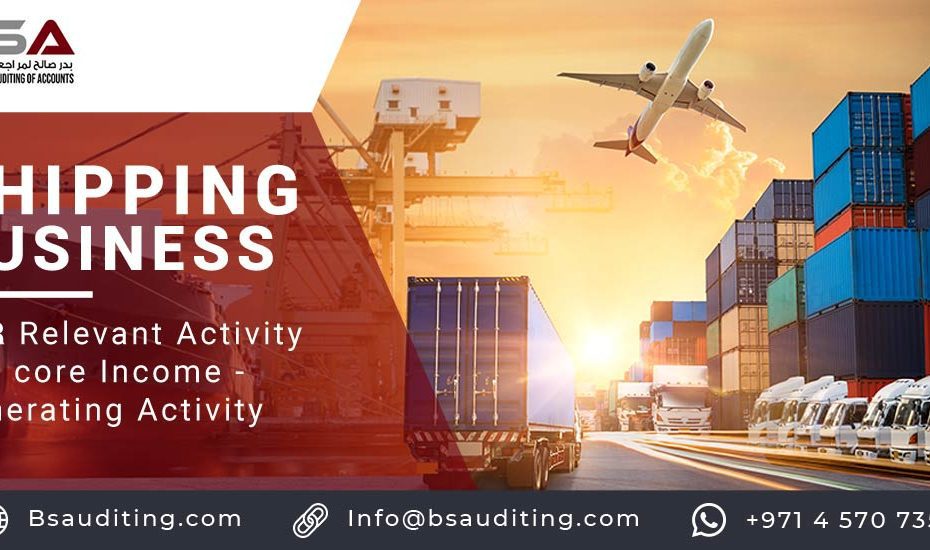Businesses in UAE are expected to use a ‘substance over form’ approach to determine whether or not they undertake a Relevant Activity and, as a result, are within the scope of the Regulations. This determination would require the business to not only consider the activities stated under their commercial license or registration certificate but also to assess the activities carried out during a financial period.
Shipping Business
Licensee must operate one or more ships in international traffic, for the transport of either passengers, cargo or both to be considered operating a Shipping Business. The definition of a “ship” for purposes of the ESR Regulations does not include:
- vessels used for fishing;
- vessels that are “small” (i.e. tonnage does not exceed ten tons); and
- leisure vessels (e.g. cruise ships and private yachts).
Further, the following activities will be considered a Shipping Business only where they are undertaken by a Licensee in connection with the business of operating a ship, or ships, in international traffic:
- the rental on a charter basis of ships
- the sale of tickets or similar documents
- the use, maintenance or rental of containers
- the management of the crew of ships.
The chartering of ships on a bareboat basis does not fall within the scope of a Shipping Business as the entity which charters the ship does not operate the ship. This activity may however fall within the scope of a Lease-Finance Business, depending on the terms of the bareboat charter arrangement. Travel agencies and international shipping agencies will not be treated as carrying on a Shipping Business merely on the basis of selling tickets to passengers for international travel by ship.
Entities that arrange for their own or other businesses’ goods to be transported overseas by sea are not considered engaged in a Shipping Business, unless they themselves operate the relevant ships.
Core Income-Generating Activities of a Shipping Business
The ESR Regulations mention the following CIGAs for a Shipping Business:
- Managing crew – including hiring, paying and overseeing crew members. It also includes the sourcing, recruitment, selection, deployment, scheduling, training, and on-going management of the crew deployed on the vessels, including the associated administration i.e. payroll, insurance, tax and social security withholding, and logistics i.e. travel arrangements, temporary accommodation etc.
- Overhauling and maintaining ships – involves having responsibility for, and the related decision making in respect of, the lifting of vessels from the water for maintenance and the general maintenance of ships.
- Overseeing and tracking shipping – refers to the management and oversight of the logistical aspects of the international transportation of cargo and passengers by ship, including overseeing and managing ship movements.
- Determining what goods to order and when to deliver them, organizing and overseeing voyages – involves activities to determine how a ship is to be utilized, the types of cargo acceptable and the scheduling of the delivery of such cargos, managing the logistical aspects of the operation of ships, determining which routes to use, and ensuring necessary contingency arrangements are in place.
How BSA can help you
We can assess if the entities and activities are within the scope of the economic substance regulations and/or whether the entity can benefit from any of the exemptions in the Regulations.
We can carry out a gap analysis that represents the current substance and corporate governance processes against what is required under the regulations.
We can support you in the preparation and submission of your annual notifications and economic substance report to the Regulatory Authorities.
Connect with our team at +97145707357 or send us an email at info@bsauditing.com.


